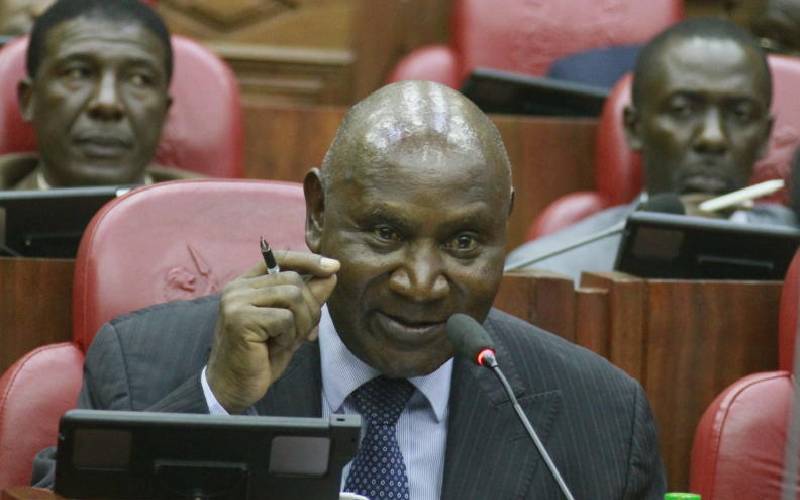×
The Standard e-Paper
Kenya’s Boldest Voice

Auditor General Edward Ouko when he appeared before the Senate County Public and Investment Committee at County Hall, Nairobi on 24/04/19. [Boniface Okendo,Standard]
One of the reasons a journalist would prefer a physical interview with Edward Ouko, the former Auditor General, is his affable demeanour.